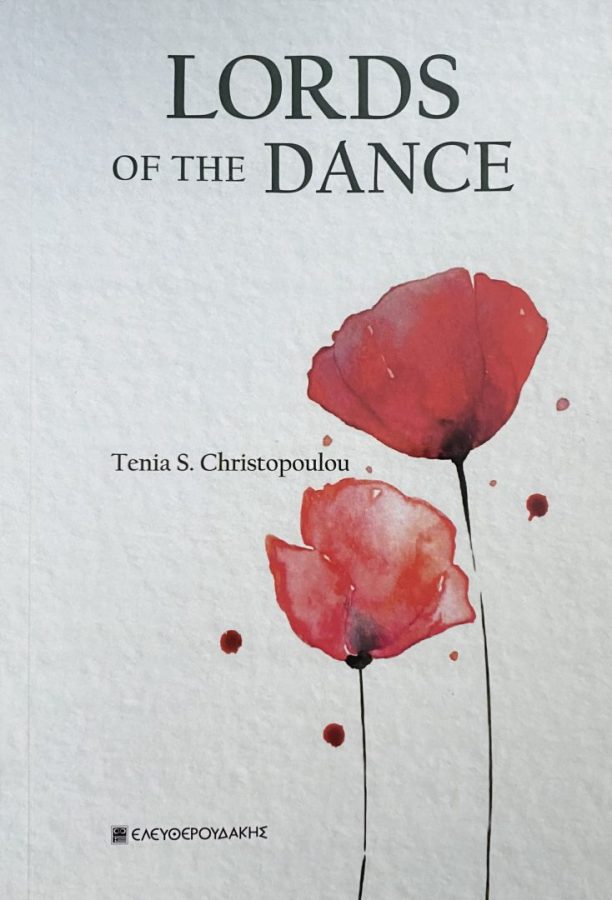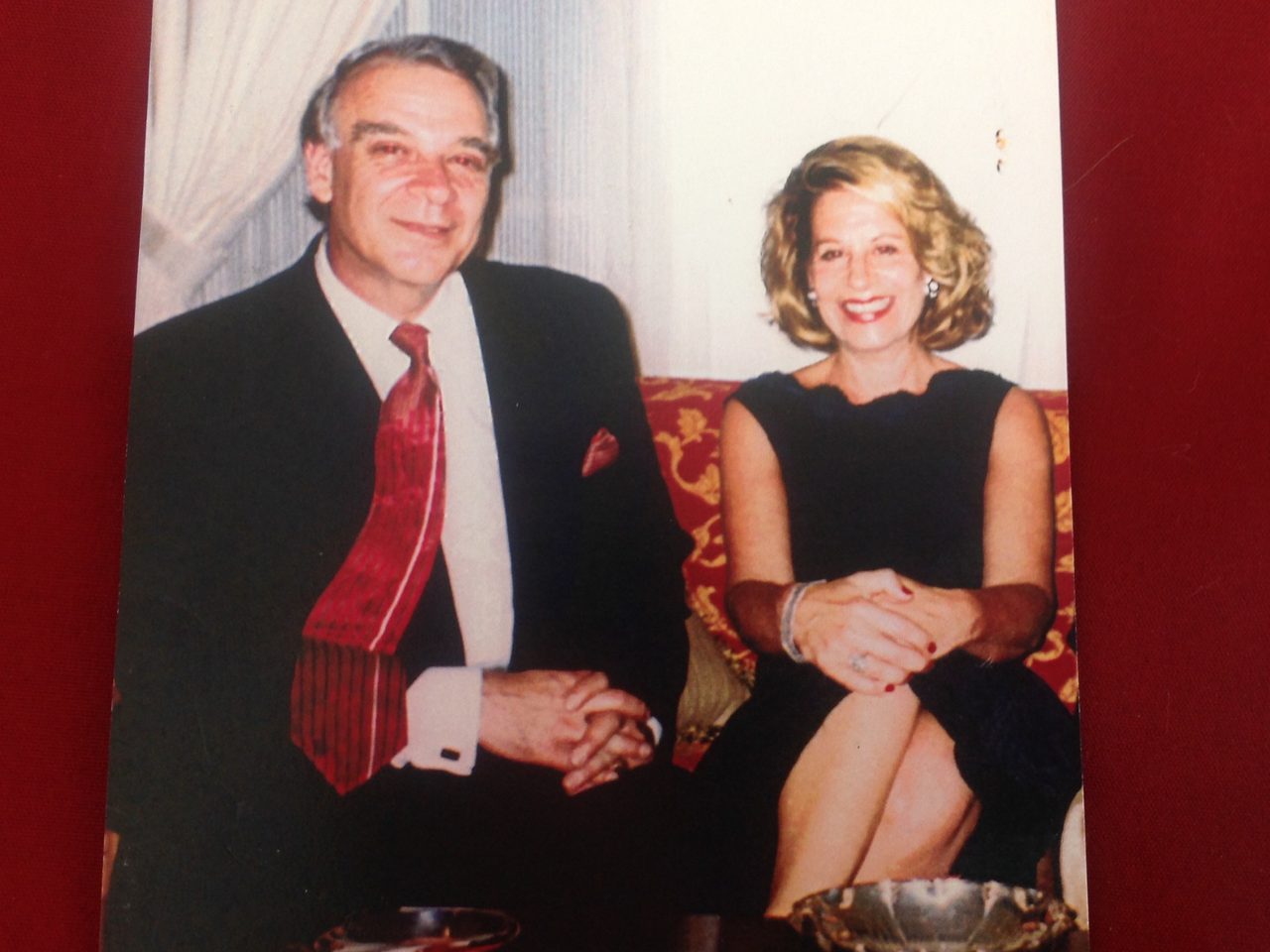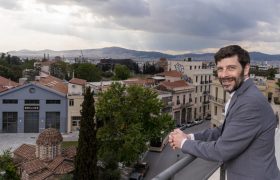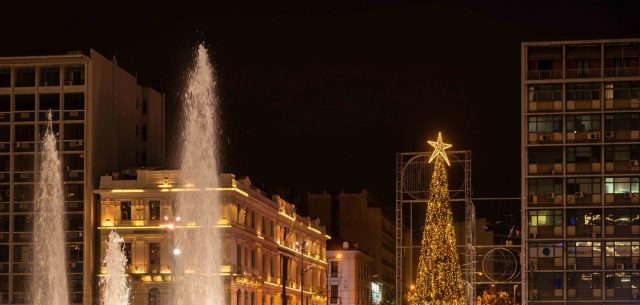The Sanctuaries Deep Within Us

Tenia Christopoulou discusses her peripatetic memoir and debut publication, Lords of the Dance with Sudha Nair-Iliades. A compelling read, Lords of the Dance takes its readers on a wide-ranging journey over several continents, whilst delving deep into the fundamental questions. What does it mean to remember? What does it mean to endure?
Tenia Christopoulou grew up in rural Virginia listening to her father’s tales of distant Greece. After completing her thesis in philosophy at the Georgetown University, she went on to work in the Greek Embassy in Washington, D.C. Her career, as well as that of her diplomat husband, Alexis, has taken her many places, from Washington, D.C, to Jakarta and Hydra. In her memoir, Lords of the Dance, the seam tying these places together, is Christopoulou’s contemplative voice, determined to remember.
Lords of the Dance recounts your own personal journey. Why did you choose this title?
There is a hymn known in the Anglican world with this title, which was based on a medieval song from the 14th century. The piece tells the story of a fellow from the Middle East, from Nazareth, who sings of his story, his “dance”. Of course, it caused a scandal in the Church, but people loved it and kept it.
The author of the more modern hymn, Sydney Carter, was inspired partly by the story of Jesus, but also partly by a statue of the Hindu God Shiva as Nataraja. He wrote “I see Christ as the incarnation of the piper who is calling us. He dances the shape and pattern which is at the heart of our reality. By Christ I mean not only Jesus; in other times and places, other planets, there may be other Lords of the Dance.”
Other pipers, other prophets, other Lords of the Dance. They are all around us. That’s all. We have sanctuaries deep within us. My story is a web, a tapestry, of some of the people in my life. Not prophets, but extraordinary nonetheless. The pipers of my dance.
How would you describe the experience of recounting moments from the past in painstaking detail? Was it cathartic? Distressing?
I would like to be able to say that it was ultimately cathartic, but in its common meaning, and I mean Freudian interpretation, I would say no. I am not a Freudian, and while catharsis can be effective for maybe five minutes, I don’t believe that one just “gets over” catastrophic events. Certainly, the passing of time helps. People help. Distraction helps. Life goes on and can result in recovery. I would put it this way: although writing a story (or painting it) is immensely helpful in a myriad of ways, it will never be a cure. The recovery comes in continuing to live, to love.
Why did you write this book if it wasn’t cathartic?
This will sound anti-climactic, but I put these memories on paper mainly for my daughter. I never want her to experience the years of wondering about certain situations, as my mother did with her mother. I also felt a tremendous need to write about my husband Alexis. And anyway, this is what I do. I write.

What was your process like while writing the book? Did you have any rituals? A favourite room? Any advice for first-time writers?
I wonder if there is such a phenomenon as a ‘first-time writer’. There is of course a writer who publishes for the first time, but that’s not the same. In this way, writers are like painters or musicians. They do what they do because they love the process and cannot not do it. Publishing is another matter. I have no advice on the subject because it is of little importance to me. If it were, I would not have written a sort of memoir. I would have written something that would sell.
Having said that, yes, there are rituals, although I wouldn’t call them that. I would call them familiar paths, like the path I take on Mount Hymettus when I want to think. I used to laugh at my mother when she used the expression “collect your thoughts.” But isn’t that what we do? Also, solitude is important to all writers and artists. I turn off my phones all the time, which annoys my friends.
“Arriving in Greece, one notices the opposite effect of arriving in most of Indonesia, where one feels a gentle, floating blanket of soft beauty, and muted voices. In Athens, there are simply no delicate flower wrappings, no layers to peel. As if touching the essence behind the mask, one senses an acknowledgment of something known long before. It stands before one: proud, strong, and present.” Excerpt from Lord of the Dance
As somebody who has lived in so many different places, what is it about Athens that makes it feel like home?
I adore Athens. Yes, there are some architectural missteps, but how could there have been a focused town planning, as in Washington, D.C. or Canberra? Town planning in Athens, a city continuously inhabited for more than 5,000 years? I love living in a city, knowing that an entire civilization can be found a few meters under the earth.
I love Athens because it is real. People are just so… human, funny, friendly, generous. The city is alive, buzzing, infinitely colorful, theatrical. I adore the cafes and the laughter. Athenians suffered enormously under a debilitating financial crisis. They are survivors.
What is your favourite book on Greece, which you’d recommend to a first-time visitor?
There are too many books to have to choose, but for a first-time visitor I would not want to recommend a tragedy. I would recommend any of Gerald Durrell’s books about life on Corfu. Also, Henry Miller. And Sofka Zinovieff’s two books on Greece.
Can a person have a far-reaching myopia that affects not only sight, but all the senses, even the soul? And what is that, anyway? The water splashes, the waves rush at my eyes, crash and disappear. Excerpt from Lord of the Dance
Your book makes frequent references to Hydra, which appears as a refuge from emotional turmoil. What does Hydra mean to you?
Oh, God, this is a hard question. Can one accurately describe a dream after it’s over? Or describe how it was when one was in a coma? I can describe colours, movements of the sea, coloured stones. I can tell you about the fires in which I burned pages of writing. About poppies. They can be very red. They can be drops of blood. Opium. No, I cannot answer this.
Are there any other places of islands in Greece which hold a special place, and why?
How about an area on the mainland? We spent many months on the sea in Kiveri, near Naflplion, where my family still live. I watched my daughter blossom in Greece’s sun, sea and amazing food. As for islands, I would say Paros, where we would go every summer and still love to go. Ioanna’s godfather and family have a home there. Greece has spectacular views- mountains, sea, colours- and when this is accompanied by the people we love the most, then the memories are woven within us, into the fabric of our lives.
Lords of The Dance is available at Lexikopoleio and all other leading international bookstores in Athens.












